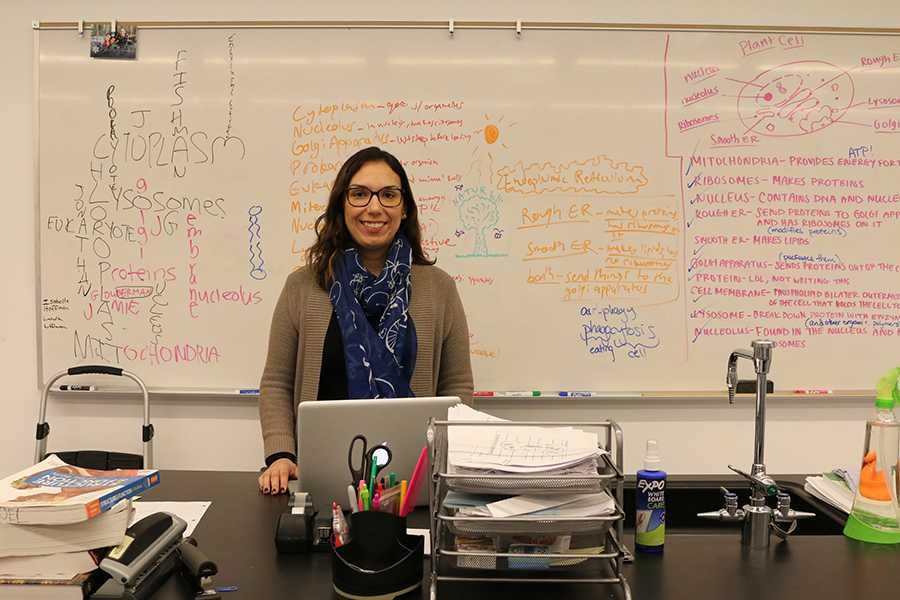TEACHER TALES: A path to science and a new home
February 10, 2016
RESEARCH: Biology teacher Dr. Melissa Noel discovered one way that fetal alcohol syndrome leads to neuronal death and brain problems.
Determined to inhibit a serious symptom of fetal alcohol syndrome, Melissa Noel injects newborn mice with high doses of alcohol. Of these mice, only some contain tPA, a gene typically known for breaking down blood clots.
She then nervously tests the mice’s learning and memory abilities, anticipating whether her discovery of a new function of tPA, one that could save numerous children’s lives, will be confirmed.
The year is 2009, and she is at the David Rockefeller Graduate Program, a program in New York City that trains scientists and that has produced the largest concentration of Nobel Prize winners in the world.
This is where Dr. Noel obtained her Ph.D. in neurobiology. She currently teaches biology and physiology at Shalhevet High School.
Her results ultimately validated her hypothesis that tPA triggers neuronal death, indicating that the mice exposed to tPA developed cognitive impairments from alcohol, while mice who lacked tPA were not affected.
That discovery moved scientists a step closer to manufacturing drugs that target tPA and stop the progression of neuronal death in fetuses in the future. Dr. Noel was able to publish her research in The Proceedings of the National Academy of Sciences.
But more than wanting to cure fetal alcohol syndrome, Dr. Noel’s upbringing was the ultimate motivating factor in her decision to move to New York in pursuit of a career in science. Growing up in Puerto Rico, her mother was a guidance counselor at the University of Puerto Rico and her father was an accountant at the same university. This gave him the opportunity to work simultaneously on a master’s degree in English literature, a pursuit he was very passionate about.
Her parents both grew up in poor families and were the first of their families to go to college. Her father, concerned about supporting his children financially, pursued accounting despite an aversion to it.
“He wanted to make my sister and me very aware that we could choose what we wanted to be,” Dr. Noel said in an interview.
Because of where they worked, Dr. Noel’s family was an impactful, and sometimes unavoidable, part of her life.
“I felt like I couldn’t escape my family,” Dr. Noel said. “I’d be walking with my friends in college and I’d see my mom walking, and I’m just like —‘I want some freedom.’”
Yearning for independence, she decided to apply for graduate programs in America.While she was at Rockefeller, Dr. Noel found herself enjoying the tutoring she did to supplement her scholarship. After getting her Ph.D., she felt unsure about pursuing a career doing research, and decided that teaching was more compatible with her personality.
“There’s something vibrant, youthful and fun about working with students,” she said. “We can have real conversations but you have a sense of humor that’s hard to find in adults.”
Dr. Noel advises current high schoolers to take the same risks she has.
“This is your time to discover what you’re about, so expose yourself to as many new opportunities as possible,” she said, “even if they make you feel uncomfortable. You need to be honest to yourself and honest to what it is that you enjoy doing and that’s what you need to pursue.”
And though her family still lives in Puerto Rico, Dr, Noel does not plan on returning. She said she stays informed about fetal alcohol syndrome, but that so far her research has not led to a cure.
Dr. Noel explained that since it’s a syndrome, there are many ways a baby can be affected, and it’s more realistic for science to strive towards treatment or prevention.
